Top: Aerial view of Fanti Town, one of the two most affected communities in Robertsport. Carlucci Cooper/ DayLight
By Carlucci Cooper
ROBERTSPORT, Cape Mount – One quiet night in Kru Town last year, Rebecca Wleh woke to cold water above her knees. Within minutes, the flood had invaded her home, swallowing everything, including the mat on which her son, who has cerebral palsy, lay.
She resettled in Popo Town, hoping for safety. But disaster struck again earlier this year, flooding her new home and destroying the little she had rebuilt.
Wleh is one of thousands of residents in Robertsport, particularly in Kru Town and Fanti Town, who authorities say must relocate. Authorities say it is the best solution for a recurring nightmare.
“The county authorities have provided around 25 acres of land between Sembehun and Latiah to relocate communities at higher risk of flooding,” said Aaron Sambolah, Grand Cape Mount County’s Development Superintendent.
Authorities say the floods, which affected at least 15 communities, are caused by sea erosion and garbage. Both block an estuary commonly referred to as the “bar mouth,” where Lake Piso, Liberia’s largest lake, meets the Atlantic Ocean.
Sea erosion in coastal Liberia is driven by rising sea levels, increasing temperatures, and heavy rainfall. A 2017 climate risk profile found that for a one-meter rise in sea levels, Robertsport, Buchanan, Monrovia and other places will be underwater, losing US$250 million.
On the other hand, local communities dispose of their garbage in the lake, clogging the bar mouth. This prevents Lake Piso from discharging into the ocean, causing the Mole Creek and Mafa River, which flow into the lake, to overflow their banks and inundate nearby communities.
Devastating
Since 2023, flash floods have repeatedly hit Robertsport and other parts of Gola Konneh District. Over 1,000 households, especially those living in wetland and riverside or lakeside communities, have been affected in Robertsport and Monrovia, according to the International Federation of the Red Cross.
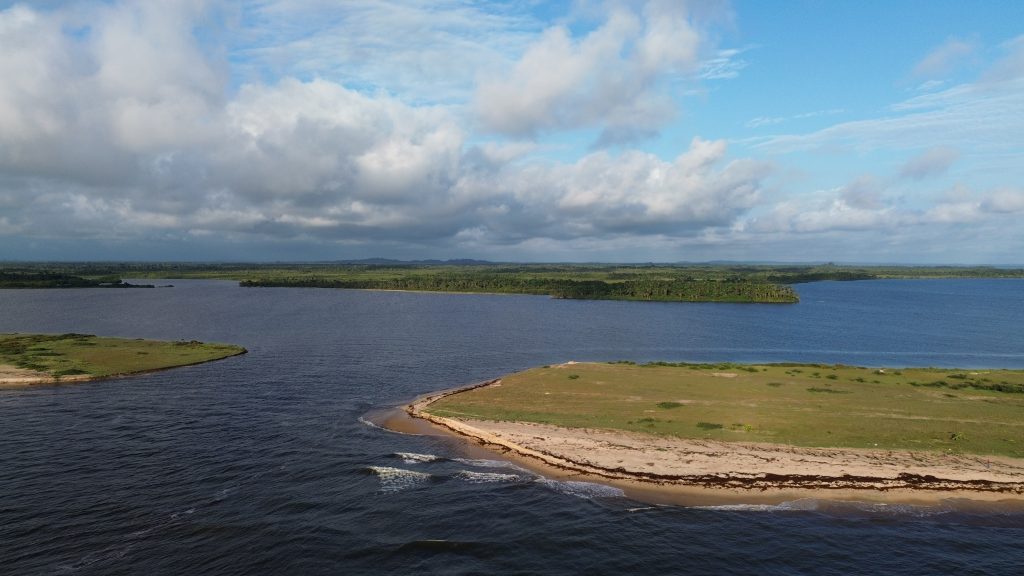
Six of Robertsport’s eight communities were impacted, with Fanti Town and Kru Town—where Wleh lives— among the worst-hit. Families were forced to evacuate in the middle of the night, leaving behind their belongings. Vulnerable groups were most affected, the Red Cross reported.
Public facilities like schools and city halls were converted into temporary shelters. However, these quickly became overcrowded, and limited access to clean water, sanitation, and basic supplies created further hardship.
Beyond health and sanitation, the economic toll has been severe, particularly for those in the fishing industry, a primary livelihood in the city. Fishermen reported damage to boats, nets, and fishing grounds. Fishmongers lost their entire stock to water damage.
“When we got there, it was devastating. The place was so flooded that even our rainboots were filled with water,” says Alice Kemokai, Youth and Volunteer Focal Person for the Liberia National Red Cross Society.
“People had nowhere to sleep, and the painful part was seeing pregnant women, mothers with babies, the elderly, and people with disabilities fighting to survive,” adds Kemokai.
The Red Cross has provided emergency shelter, food, and non-food items such as pots, mats, and buckets. Local authorities have also contributed US$10,000 to support immediate relief efforts. Additionally, funding from ECOWAS is expected to provide US$250 each to over 500 victims of last year’s flood.
Despite these, officials reckon that humanitarian assistance is unsustainable and relocation is the best solution. In 2023, they secured the land in Sembehum, some seven kilometers from Robertsport.
“We recommend relocation, especially for communities along the ocean,” says Sando Kamara, Coordinator at the National Disaster Management Agency. “It will help curtail flooding, since people in Fanti Town often dump waste into the lake, clogging the bar mouth.”
Development Superintendent Sambolah agrees with Kamara. “The intent is not to relocate Robertsport itself, one of our national heritage sites. It is to move affected communities to prevent future casualties,” he says.
The Group of 77, a government-run agency that supports people with disabilities, is advocating for a location favorable for children like Wleh’s son, who has issues with movement.
Relocation will add a new page to Robertsport’s impressive history.
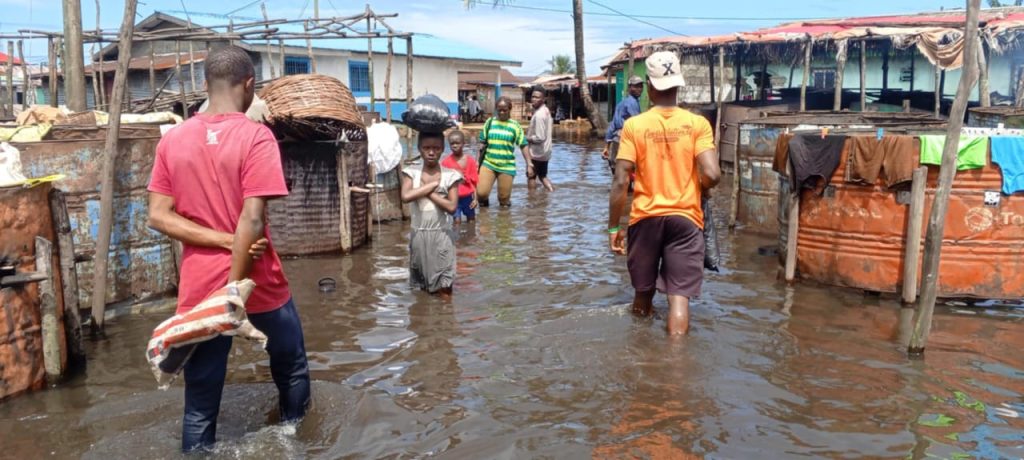
Built on a hilltop, Robertsport overlooks the vibrant Atlantic Ocean, Lake Piso, and a massive mangrove reserve.
Robertsport was founded in 1856 by freed African Americans, and its colonial-style buildings and cultural ties to the U.S. remain visible. It was named after Joseph Jenkins Roberts, Liberia’s first president, and had been discovered by Portuguese navigator Pedro de Sintra in 1462. Destroyed during Liberia’s civil wars, the city has become a symbol of resilience through eco-tourism and fisheries.
Residents like Wleh are willing to leave the city’s impressive history behind to escape the floodwaters.
“Anywhere the government wants to carry us, I’m willing. I’m tired. The cold is killing us. My son’s condition is my greatest worry,” says Wleh.
Joseph Ajane, a fisherman from Kru Town, is prepared to resettle in Sembehum or elsewhere.
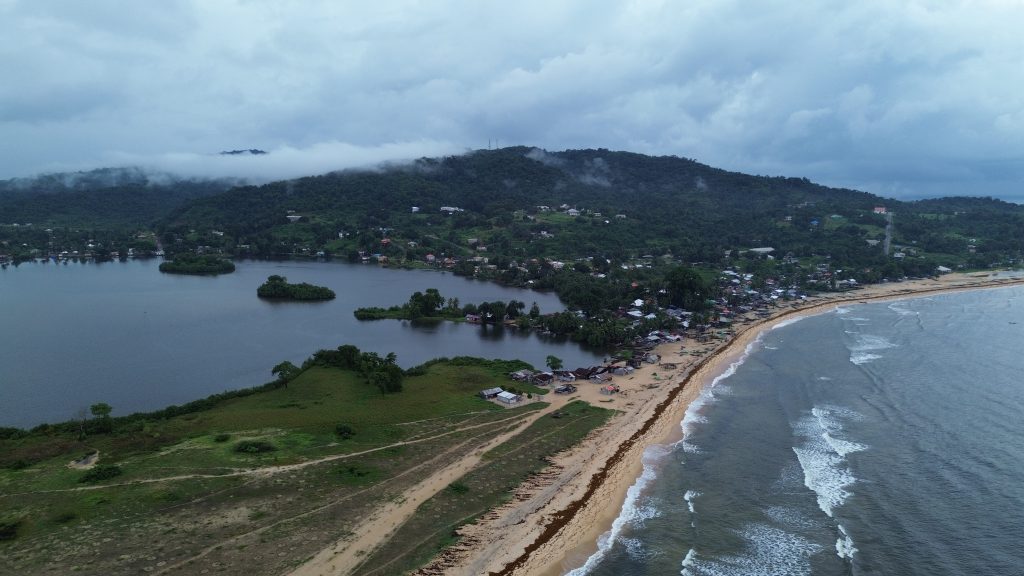
“If the government or any NGO wants to relocate us, we will be happy. Even though it will be challenging for me as a fisherman to live far from the sea, I have other skills I can survive on,” such as masonry.
Others, like Amie Fahnbulleh, a fishmonger, worry that relocation could separate them from their livelihoods. After losing her business and savings to the floods, she fears relocation will be difficult.
“We want the government to help us with money to fix our homes. We cannot relocate to somewhere far because it will give us a hard time to buy, sell and dry our fish,” says Fahnbulleh.
Some residents propose relocating inland during the floods and returning afterward.
Fishmonger Beatrice Botoe supports this idea.
“If the government and other organizations can come in to help us, this will be very good for us who are living here. We will only be coming back here to dry our fish and go back to our houses daily,” says Botoe.
[Samuel T. Jabba contributed to this report]
This was a Community of Forest and Environmental Journalists of Liberia production.

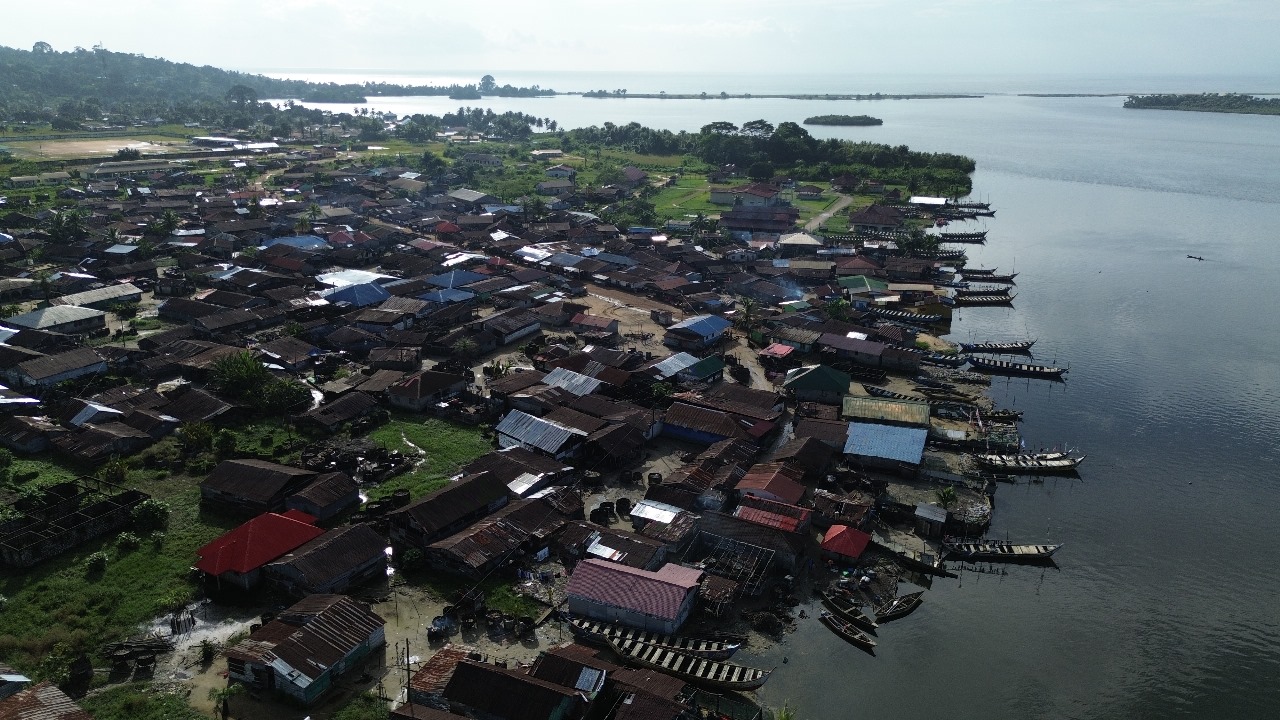

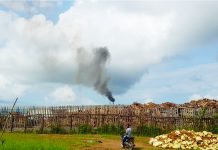
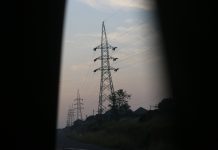
Facebook Comments